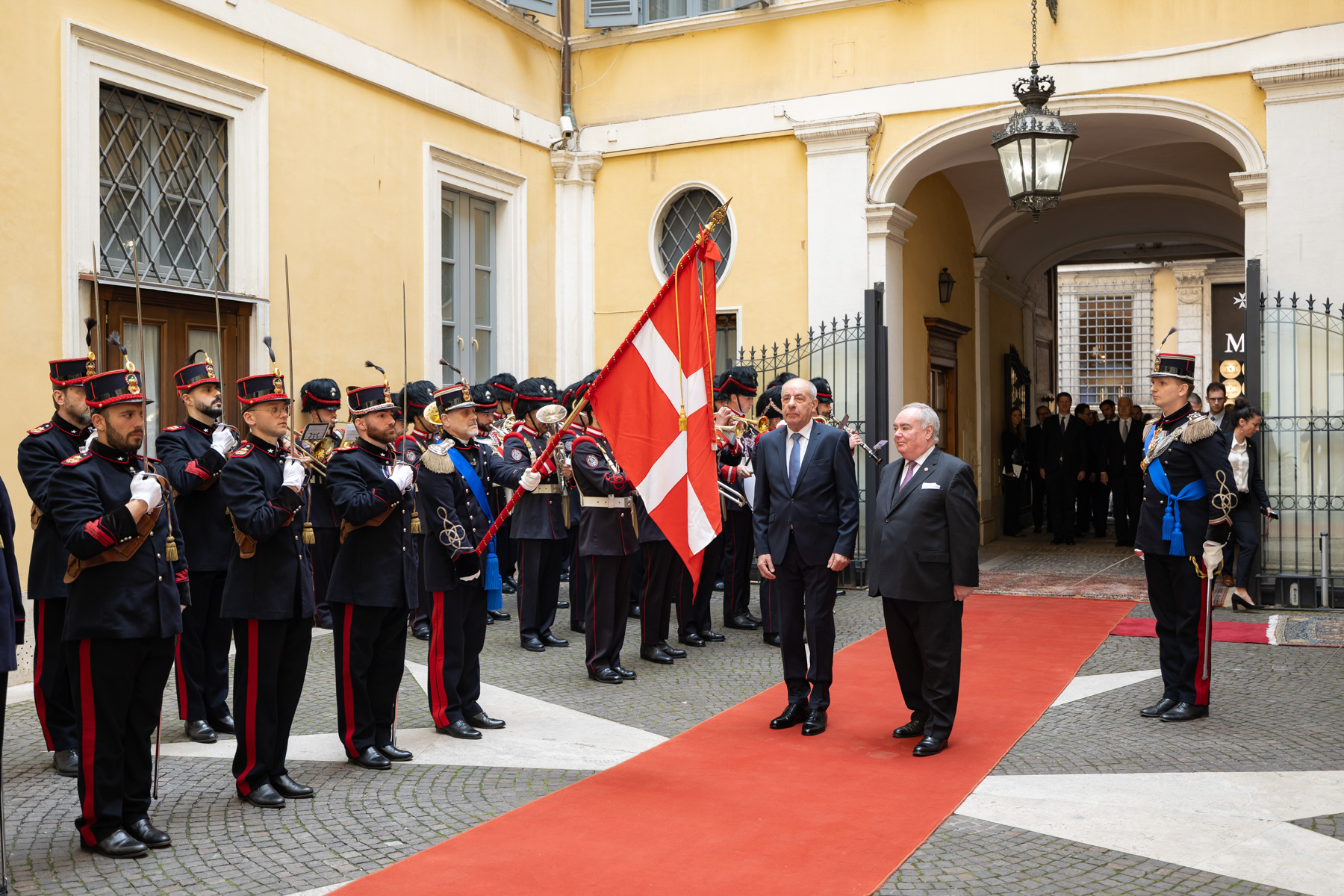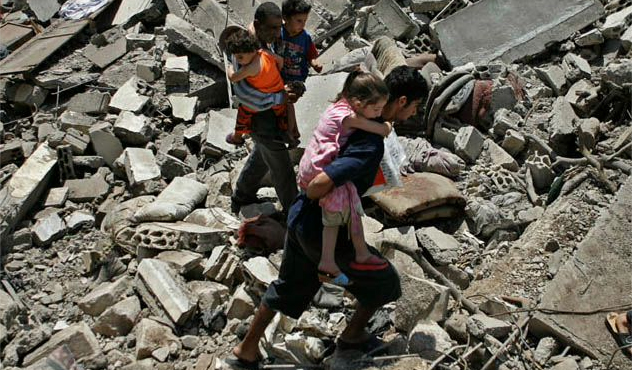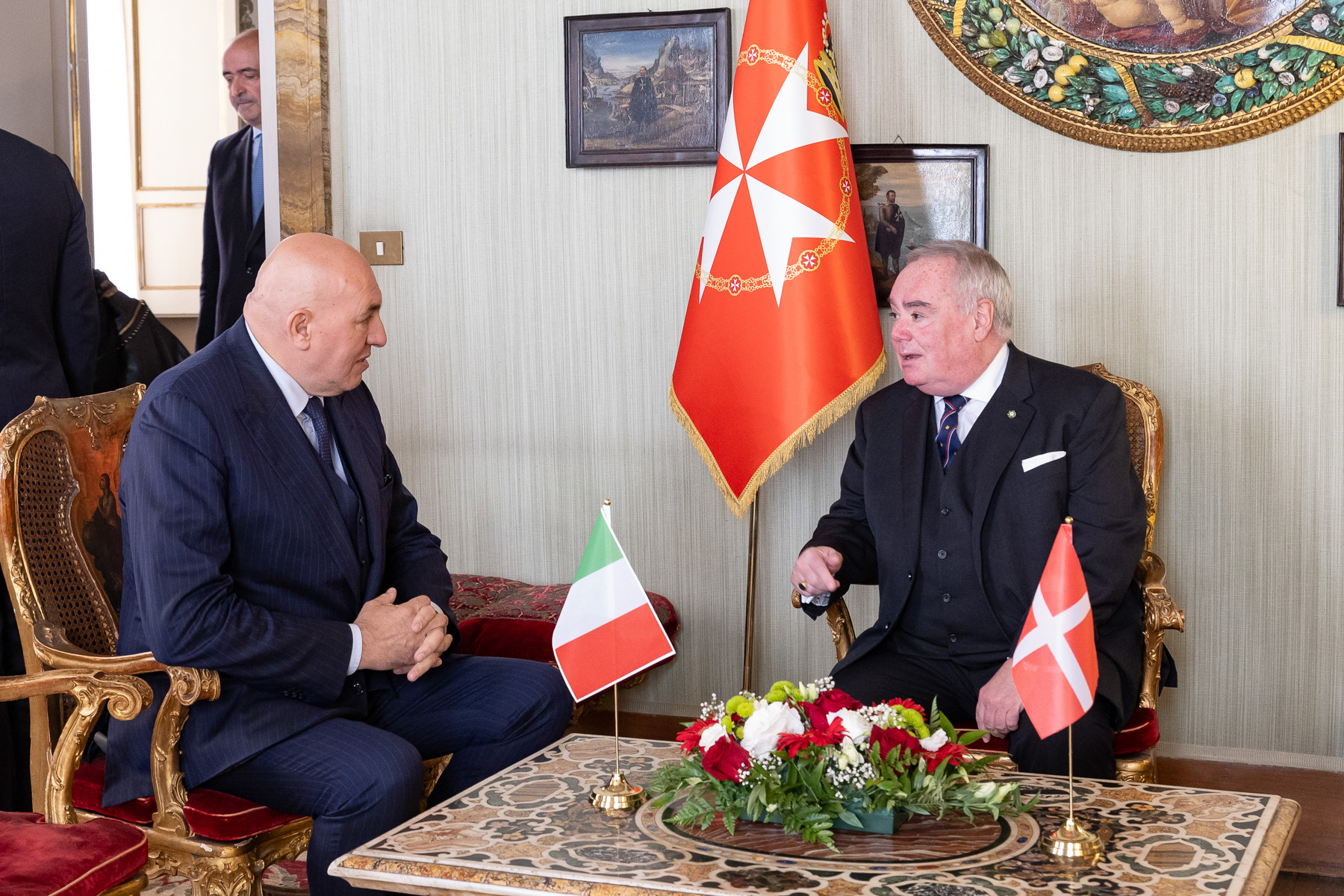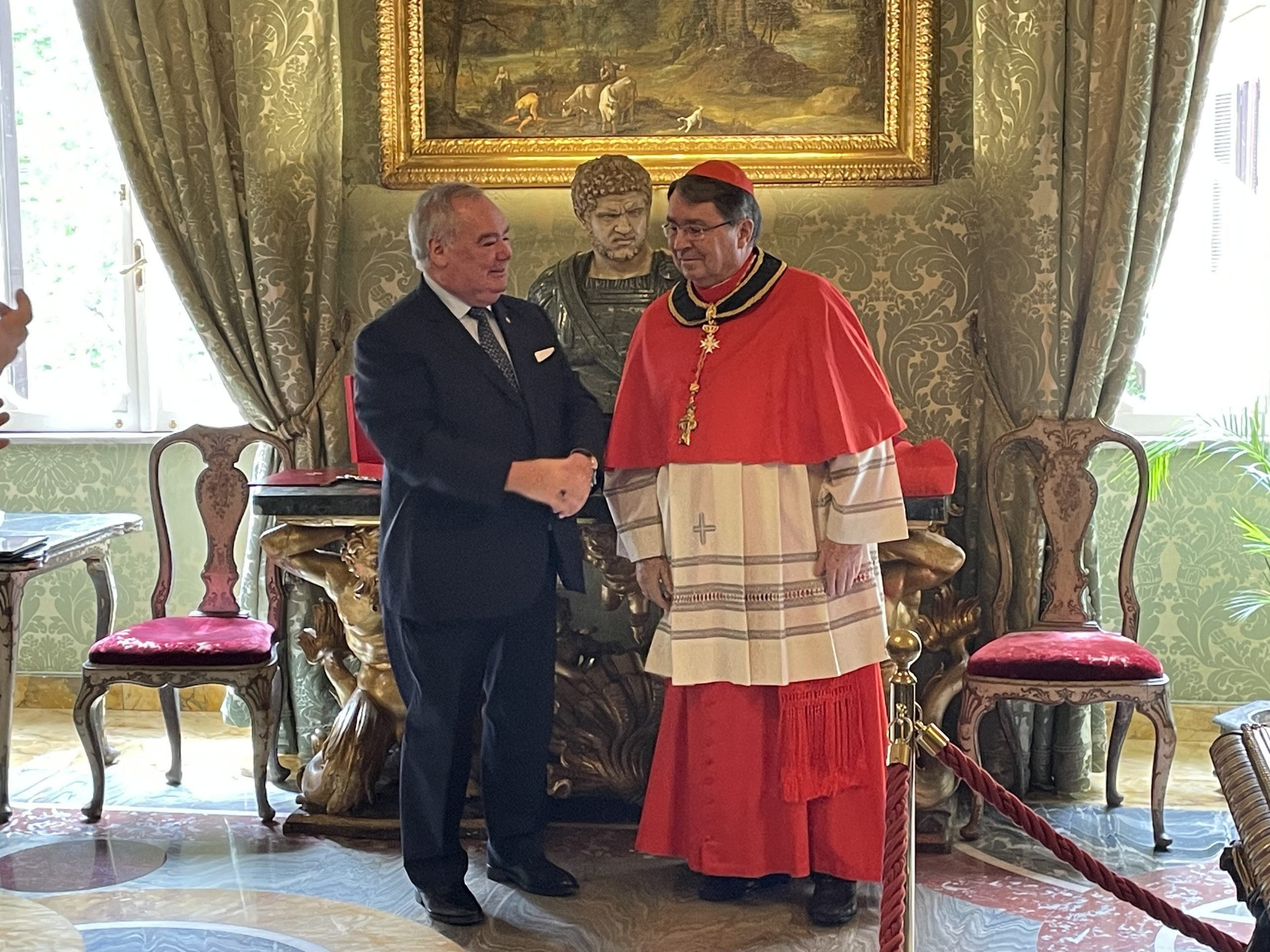Third situation report from the President of the Lebanon Association of the Order of Malta H.E. Marwan Sehnaoui: The military operations change by the day, becoming more and more cruel and murderous and changing the human drama undergone by the Lebanese population.
Adding to the general distress in this volatile situation, emerges a deep feeling of fear of what tomorrow may hold in store, as, despite the diplomatic goings and comings no sustainable solution has so far appeared on the horizon.
The world was shocked by the deaths of so many children and adults found under the ruins of a building hit by bombs in the biblical village of Cana (a village close to the Order of Malta Centre in Siddikine, a centre which, due to military operations, was rendered useless from the very start of this war).
Driven by a call for solidarity with the people of Lebanon, international humanitarian help has started to arrive through humanitarian corridors established thanks to the intervention of the United Nations. This international help must be updated on a daily basis according to the needs on the ground, needs which are constantly evolving with the situation.
The route of those humanitarian convoys inside the country is being organised ‘on sight’ due to the security status which changes hourly.
The 48-hour truce announced for air strikes meant a slight improvement in the movement of convoys(yesterday morning, in collaboration with the Red Cross, we managed to arrange for the sending of medical supplies to Rmeich. But the convoy has been halted in Tyre and we are waiting for news).
This country is facing EMERGENCY problems, day after day, with ever greater acuteness.
According to the High Committee of Relief, the flow of displaced persons from different areas targeted by the military operations is estimated, as at 1st August, ± 914,000 displaced of whom:
– 128,760 displaced are sheltering in 761 schools;
– 565,000 are sheltering in the houses of relatives & friends or in churches and mosques.
– 220,000 have fled Lebanese territory, mainly towards Syria, Jordan, Cyprus.
According to UNICEF, almost 50 % of the displaced are children.
The displaced are mainly installed in schools, which are not equipped to face such a situation. They are suffering dramatically from lack of sanitary infrastructures and access to drinkable water. The risks of inordinate development of diseases due to lack of hygiene (diarrhoea, skin diseases, etc.) are significantly high and already spreading.
This situation is very critical.
In chronological importance, the following needs and problems, according to our field teams, remain extremely URGENT:
1. The hygenic conditions of the places where the displaced are accommodated.
Family kits, including hygiene products and water are urgently needed.
Provisions to obtain and store water are desperately required, and also to ensure the decontamination of sanitary spaces and the sanitisation of soiled water.
2. Need for chlorine for the disinfecting and the improvement of the quality of the water, especially for newborns and babies.
3. Milk for newborns and babies.
4. Medical drug supplies.
5. Mattresses, sheets and blankets, etc.
6. Food products to supply the Displaced People Centres.
7. Clothes (for the current weather-35 degrees- essentially for children)
The hardships endured by the populations trapped in combat zones or bordering such zones continue to multiply.
The access of help to these people is extremely perilous.
The local people, marooned until now in the combat zones, are fleeing whenever they have the chance; therefore, more than 5,000 local people from Rmeich, (originally 8,000) have already left for safer areas. Also, the majority of the (estimated) 20,000 displaced who found refuge in Rmeich also left for safer areas during the 48-hour truce on air strikes.
In theses zones, the support teams are starting to show sign of fatigue due to their non-replacement.
There is a shortage of basic supplies (food, fuel for generators & electricity, medical supplies, etc.), and the war psychosis continues to generate an accelerated movement of this process, especially on the fuel and petrol levels: in the non-targeted zones, the queues at petrol stations are considerably long.
The few stations that are still delivering any petrol are doing it on a basis of 10 litres per car.
Medical supplies, milk for newborns and babies’ milk still pose a major supply problem.
Mobilisation of the Lebanese hospitals (private or public) is total. Their operational level is comprehensive for the moment. However, in under a week they will suffer from fuel shortage for their electrical generators.
In the combat zones, the Governmental Hospital of Tyre is still operating; for the serious cases it coordinates with the Hospital of Saida.
Three field hospitals donated to the Ministry of Public Health are operational. These hospitals operate with their complete teams of doctors, nurses, equipment, etc.
These hospitals are, for the moment, operational in Beirut where the majority of displaced persons are installed in schools or with families.
– The field hospital donated by the Kingdom of Saudi Arabia is installed Beirut’s hippodrome and is operating on a full time basis;
– The field hospital donated by the Kingdom of Jordan is installed in the area of Verdun (former land of the UNRWA) and is operating on a full time basis;
– The field hospital donated by Egypt is installed on the premises of the Arab University of Beirut and is operating on a full time basis.
Field hospitals will play a crucial role later on, once there is a ceasefire and a reconstruction and reintegration program is initiated.
The extent of the destruction, increasing by the day, highlights the problems that the country and all NGOs will have to face on ceasefire: the reintegration of the displaced and the future reconstruction programme.
For the Order of Malta, our intervention still focuses mainly on medical care and pharmaceuticals (exception: the Health Centre of Roum – Jezzine, where in addition to medical services, it is looking after 200 families ± 1000 displaced – in the region where there are ± 8000 to 10,000 refugees in the area).
Action: the Order of Malta has adopted the following operative mode:
1. Ensuring the dispatch of pharmaceuticals.
The process of convoying the pharmaceuticals packages to war zones represents an important problem. We are resolving this issue step by step ‘on sight’.
2. Providing medical care and pharmaceuticals to different Displaced Centres within the boundaries of the zone of the Order of Malta Health Centres.
3. Building a small emergency stock of pharmaceutical products that will allow us to continue to offer first quality emergency services if the shortage situation becomes more acute. At the same time, it will allow us to intervene efficiently as soon as the problem of the reintegration of the displaced is faced.
While waiting for the arrival of donations, we are still purchasing pharmaceuticals available on the local market. Suppliers’ stocks are decreasing at a drastic speed but a slight provision is routed through Syria. The local market has an estimated one month’s supply.
Sister Sylvie Toison, who is responsible for the creation of an emergency mobile team formed of volunteers of the Order of Malta, started her mission on Monday July 31. The team is to intervene in Displaced Centres’ located outside the zones of intervention of the Order of Malta Health Centres.
To carry out and follow up of these operations urgently requires substantial funds not planned for in our normal budgets and reserves. The funds are needed to cover: acquisition of pharmaceuticals, hygiene products, transport and fuel expenses, sanitary installations in Displaced Centres, expenses, etc.
(Estimate: one month’s expenses for the urgent activities of the Order of Malta: US $ 100.000).
This report covers a concise overview of the humanitarian situation in Lebanon.










